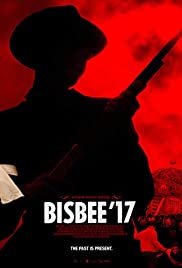
It’s 2017 in Bisbee, Arizona, an old copper-mining town just miles from the Mexican border. The town’s close-knit community prepares to commemorate the 100th anniversary of Bisbee’s darkest hour: the infamous Bisbee Deportation of 1917, during which 1,200 striking miners were violently taken from their homes, banished to the middle of the desert, and left to die. Townspeople confront this violent, misunderstood past by staging dramatic recreations of the escalating strike. These dramatized scenes are based on subjective versions of the story and “directed,” in a sense, by residents with conflicting views of the event. Deeply personal segments torn from family history build toward a massive restaging of the deportation itself on the exact day of its 100th anniversary.
You May Also Like
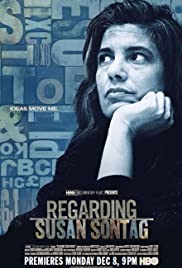
An intimate study of one of the most influential and provocative thinkers of the 20th century tracking feminist icon Susan Sontag’s seminal, life-changing moments through archival materials, accounts from friends, family, colleagues, and lovers, as well as her own words, as read by Patricia Clarkson.

Upon learning of her diagnosis, Marina begins to look for answers to her questions. Fearing public disclosure of the diagnosis and condemnation of others, Marina writes down all her thoughts in a diary. But once the secret becomes apparent…
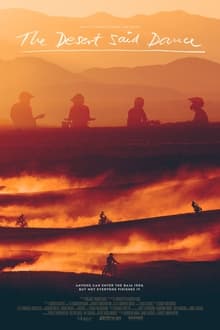
Anyone can enter the Baja 1000, but not everyone finishes it. Some aren’t tough enough. Some don’t have bikes that are tough enough. And some make mistakes that take them out of the race. Sometimes, tragically, forever. This is a place where dreams go to die. Grand visions and hopes, materialized, but rarely sustained. The desert has this mysterious allure, there is freedom, solitude, and opportunity. The desert is the unforgiving canvas of life, and this is a story about the art of racing with it and against it.
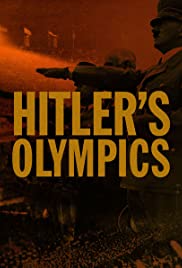
Hitler, Nazi propaganda and 1936 Berlin Olympics are put under the microscope to uncover hidden truths and the historical legacy of those games.
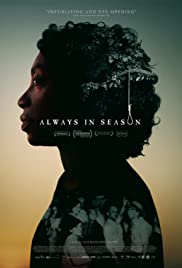
When 17-year-old Lennon Lacy is found hanging from a swing set in rural North Carolina in 2014, his mother’s search for justice and reconciliation begins while the trauma of more than a century of lynching African Americans bleeds into the present.

This documentary film chronicles the process of renaming Ft. James Island, which was a holding cell for slaves during the Trans-Atlantic Slave trade, to Kunta Kinteh Island- after one of The Gambia’s most well-renowned sons. It shares the points of view of both the government and the Kinteh family, who still preserve their history as residents of neighboring Juffureh Island. This film embodies the rich spirit of a people that can be passed on throughout the diaspora for decades to come.
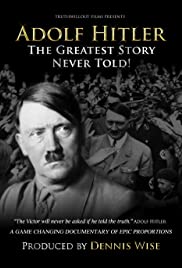
Far outside what’s normally taught as “history”, this 6-hour documentary attempts to explain what’s normally glossed over – Germany’s actions prior to WWII, Hitler’s popularity, the support of the Nazis by the Germans, the basis for hardline Nazi stances against Jews, and why Nazism was such a danger to the established world powers. It chronicles the German WWI defeat, communist attempts to take over Germany; hyperinflation during the Weimar Republic, widespread unemployment and misery that served as the foundation of Nazi principles, and Hitler’s amazing rise to power. It also reveals a personal side of Hitler: his family background, his artwork and struggles, and what motivated him to pursue a career in politics. While open to criticism for being “pro-Nazi” in its perspectives, the documentary does present many factual foundations for those perspectives, highlighting an endless list of hypocrisies and double-standards imposed on Germany in the years before, during, and after WWII.

Harold Russell, an American soldier who lost his hands in a training accident, tells the story of his medical rehabilitation at Walter Reed Army Medical Center in Washington DC, how he and his fellow amputees at the hospital at first despaired and then found new hope in the prostheses and training available to amputees through the Army’s medical corps. Russell learns to wear and to operate the hooks which replace his hands and becomes competent to perform many tasks he had once thought no longer possible. Discharged from the Army, he is welcomed into Boston College by college president William J. Murphy, S.J.
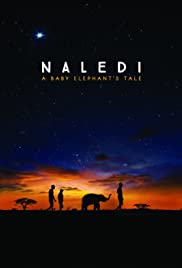
The incredible, true-life story of a baby elephant born into a rescue camp in the wilderness of Botswana. When she’s suddenly orphaned at one month of age, it’s up to the men who look after her herd to save her life.

As he prepares for surgery to restore his vision, Mark Cousins explores the role that visual experience plays in our individual and collective lives. In a deeply personal meditation on the power of looking in his own life, he guides us through the riches of the visible world, a kaleidoscope of extraordinary imagery across cultures and eras. At a time when we are more assailed by images than ever, he reveals how looking makes us who we are, lying at the heart of the human experience, empathy, discovery and thought. He shares the pleasure and pain of seeing the world, in all its complexity and contradiction, with eyes wide open. As the COVID-19 pandemic brings another dramatic shift of perspective, he reaches out to the other lookers for their vision from lockdown, and he travels to the future to consider how his looking life will continue to develop until the very end.
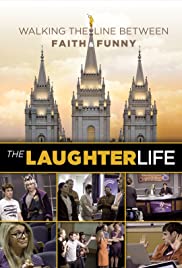
The Laughter Life follows a week in the life of the young comedians who write and star in Studio C, a popular sketch comedy television show that has garnered over 1 billion views on YouTube.
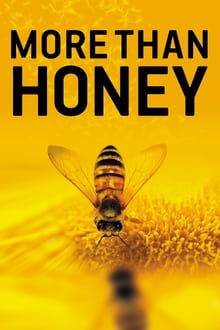
With dazzling nature photography, Academy Award®–nominated director Markus Imhoof (The Boat Is Full) takes a global examination of endangered honeybees — spanning California, Switzerland, China and Australia — more ambitious than any previous work on the topic.